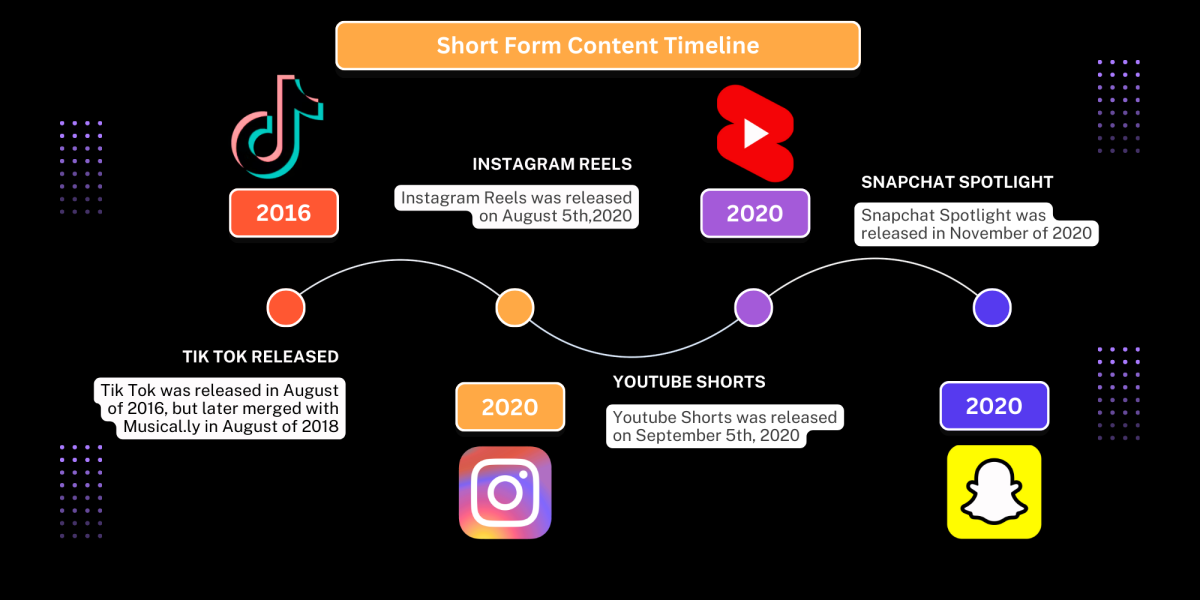There are two students. One prefers to raise their hand in class. The other prefers to quietly absorb information from the discussion. One prefers to go out to parties and football games with large groups of people. The other prefers to hang out with a small group of close friends. One has no problem going up to someone and starting a conversation. The other is filled with a wave of fear at the thought of making conversation.
Which one are you?
At a Glance
 The Myers & Briggs Foundation, an organization that works in the field of psychological type, developed the Myers—Briggs Type indicator instrument, which is a widely used test fused to analyze a person’s personality.
The Myers & Briggs Foundation, an organization that works in the field of psychological type, developed the Myers—Briggs Type indicator instrument, which is a widely used test fused to analyze a person’s personality.
The test helps to determine whether an individual is an introvert or an extrovert as well as how an individual analyzes information (Sensing vs. Intuition); how an individual makes decisions (Thinking vs. Feeling); and how an individual prefers information to be presented to him or her (Judging vs. Perceiving).
The aspect that most arguably affects student interactions in the classroom is introversion vs. extroversion. The Myers & Briggs Foundation defines introversion as liking to get “energy from dealing with the ideas, pictures, memories, and reactions that are inside [one’s] head, in [their] inner world.”
Mr. Brian Twadell, an AP English Language and American Literature teacher at LHS, has been an introvert since he was young; however, he has become more extroverted as he has gotten older. He said that he still has some common traits of introversion, such as anxiety at a social event.
“I am not real comfortable in a party type environment, unless I know I have a smaller group of people who I am close to and I can chat with. Usually once the party starts, I end up being fine, and those are traits that are real typical of any introvert,” Mr. Twadell said. He added that he can be tired at the end of a work day because “many introverts get exhausted by a lot of social stimulation.”
On the other hand, the Myers & Briggs Foundation describes an individual as an extrovert if they receive “energy from active involvement in events and having a lot of different activities.” Extroverts prefer to focus more on the external world rather than their internal world.
“I think extroversion is more about thinking out loud, being enthusiastic, and using your voice, versus [introversion being about] doing things in your head,” said Mason Maniloff, an extroverted LHS junior.
People often assume that a person who is perceived as shy or who does not talk much is an introvert. However, that is not always the case. According to the Myers & Briggs Foundation, personality types all have to do with where someone gets their energy from and where their attention is focused. Introversion is purely based on if someone likes to focus more on their internal world rather than the external world.
“I think that sometimes extroverted people think that introverts want to be extroverts and we’re just not good at it. We don’t really want to be extroverts. It can be a chore to be extroverted,” Dylan Boyle, an introverted junior at LHS, stated.
Conversely, according to The Huffington Post, a popular stigma for extroverts is that they talk too much and don’t listen enough. However, this stereotype is often not true.
“We need to remove all of those stigmas. They just have different needs socially, and there are just different personality types” said Mr. Twadell.
In the Classroom
 A book by Susan Cain titled “Quiet: The Power of Introverts in a World That Can’t Stop Talking,” emphasizes the importance of introverts in a world that is made more adaptable for extroverts. Cain reveals that extroverts often receive more praise because they are talkers in a world that thrives off of communication.
A book by Susan Cain titled “Quiet: The Power of Introverts in a World That Can’t Stop Talking,” emphasizes the importance of introverts in a world that is made more adaptable for extroverts. Cain reveals that extroverts often receive more praise because they are talkers in a world that thrives off of communication.
In a 2012 Ted Talk, Cain stated, “If you picture the typical classroom nowadays: When I was going to school, we sat in rows. We sat in rows of desks like this, and we did most of our work pretty autonomously. But nowadays, your typical classroom has pods of desks — four or five or six or seven kids all facing each other. And kids are working in countless group assignments. Even in subjects like math and creative writing, which you think would depend on solo flights of thought, kids are now expected to act as committee members.”
As Cain alluded to, despite the fact that LHS, and the world as a whole, is made of a mix of both introverts and extroverts, with a large emphasis on verbal communication, the world is made more adaptable for extroverts. This is especially evident in a school environment, as classroom discussion and presentations are often considered more extroverted activities that are prevalent in high schools. Communication is arguably one of the most important skills to have in life, and extroverts often excel in this area.
“I think that teachers try to push more of extroversion than introversion… I have no problems participating in class, raising my hand, talking, and doing discussions” said Maniloff, “I can understand that introverts don’t enjoy doing that, but that is not how life works”.
Extroverts can receive more praise, as their ideas are often more outspoken than their subtle introverted counterparts.
“Kids that are willing to speak out usually get more accolades or attention. But this is the one thing that I think about: this young lady who is very much an introvert…she was really well-respected. She was a senior in highschool and went on to become a social worker. She was not shy, but she was definitely an introvert. I think her biggest thing was that she really listened. When she was around, she was not the loudest one, but everyone felt her presence,” Dr. Brenda Nelson, the Prevention and Wellness Coordinator for Libertyville High School.
While extroverts’ outgoing nature can benefit them while talking to people, occasionally it may inhibit them from being productive in the classroom.
“I get in trouble for talking a lot. I always get in trouble for talking in school. It’s hard when I’m grounded,” extroverted junior Margo Lawless stated.
Although there are some factors that may inhibit some extroverts from working productively in a classroom environment, their outgoing nature often benefits them in classroom discussions.
On the other hand, introverts’ ability to absorb information can also be beneficial in classroom environments.
“My best friend is super introverted…We have a few classes together this year, so I’ll always have perfect for participation and she’ll always have zero points, but there’s kind of a benefit to that because she gets to focus better and is able to observe more to always know what’s going on,” Lawless stated.
However, some teachers, such as Mr. Twadell, recognize the differences of each personality type and design their classroom to meet the need of both personalities.
“I have to be cognizant that, that maybe up to half of our population are introverts. So I have to realize that half of the students in my room could be introverts…I have to use various pedagogical (the art of education) teaching strategies, to meet the needs of both introverts and extroverts,” recognized Mr. Twadell.
Mr. Twadell said that in classroom discussions, he will often have to call on introverts, and they often provide good answers. On the other hand, extroverts are more frequent to volunteer their answers.
Mr. Twadell also will sometimes allow students to form small groups where introverts may feel more comfortable sharing their ideas.
“Doing things like Think-Pair-Share, where you know you do a little work and then turn to your neighbor and share, engages everybody. So then I know both the extroverts and the introverts are coming together,” said Mr. Twadell.
Although he’s an introvert, Boyle feels that school being more extrovert-oriented is a good thing. “Introverts may be uncomfortable talking or presenting [in class], but that’s good because you have to work with other people in the real world,” said Boyle. He also added that introvert-oriented activities, such as individually studying, are also present in high school, and that those aspects are good for extroverts as well.
“Even though [extroverts] may not like being closed off and studying, they need to push themselves out of their comfort zone. I think it is good to push yourself out of your comfort zone. And since school kind of equally inconveniences introverts and extroverts, it equally helps them. I think it is a good thing,” Boyle added.
Why it Matters
Many people may find personality types to be interesting but question their importance. However, knowing one’s personality can help to decipher environments one may thrive in, which in turn leads to more productivity and innovation. Dr. Nelson believes in the importance of knowing one’s own personality type to help improve their understanding of themselves.
“It’s helpful when going to college, deciding what dorm you want to live in, what kind of roommate situation do you wanna have, knowing basically just how you wanna structure your life,” Dr. Nelson stated. “Self-knowledge is power, so I think it is really important for kids to think, well, not necessarily ‘What am I?’ in terms of what somebody else determines, but, ‘What is my experience in the world and how can I quicken myself to learn better and be more interested in the world around me?,’ whether that’s improving my listening or my communication,” Dr. Nelson said.







